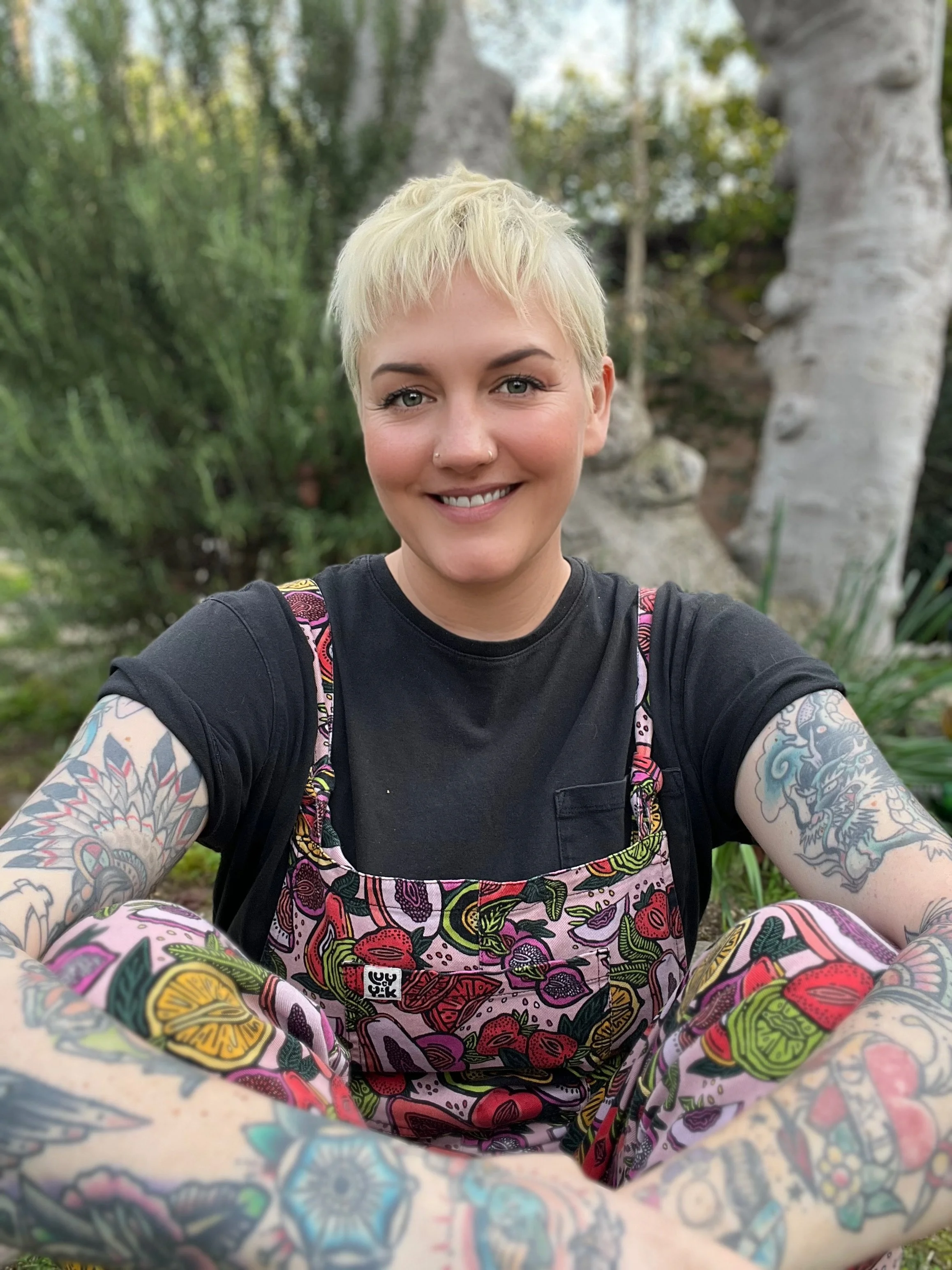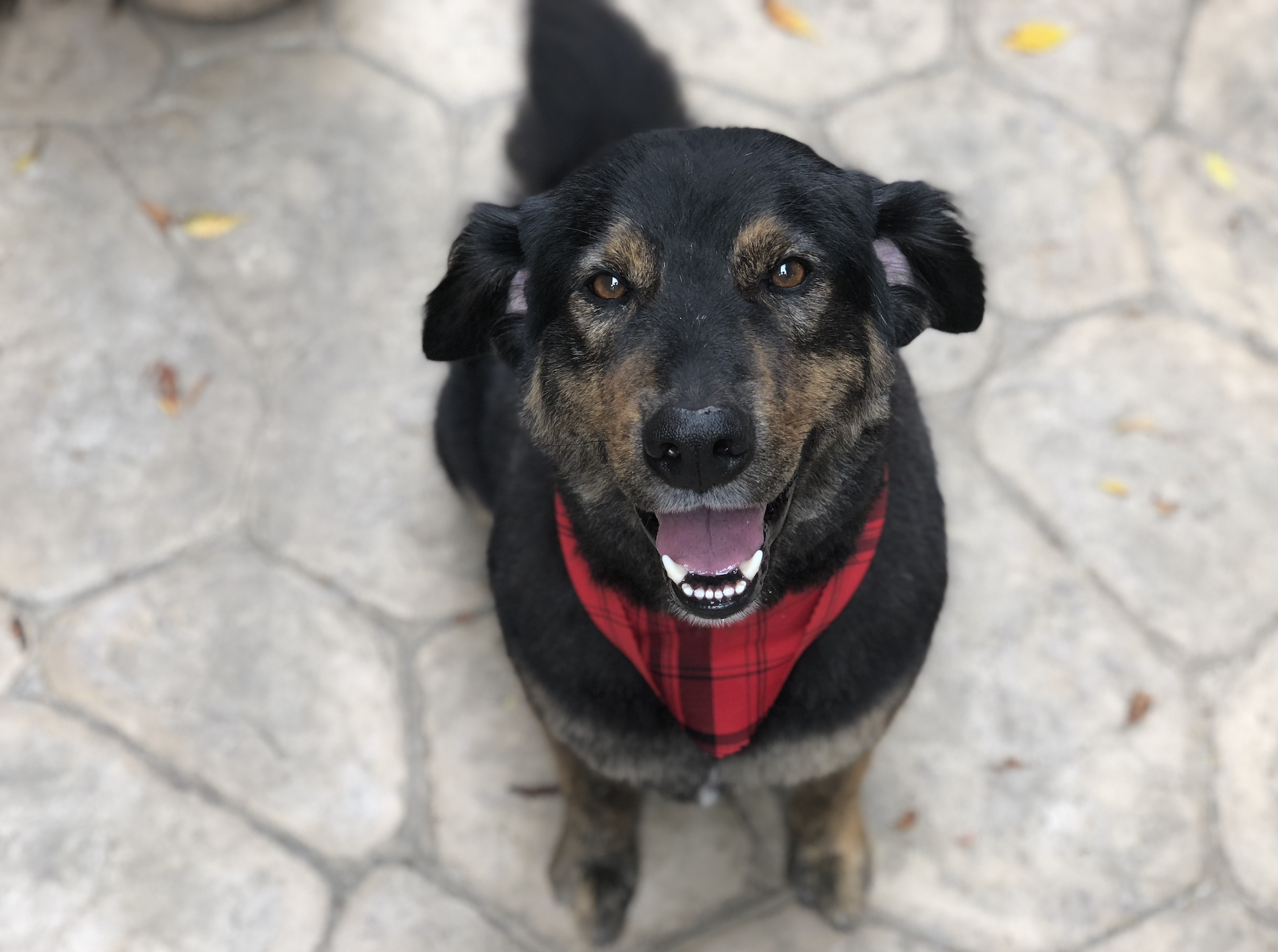
A relational approach to healing.
Katie Holz, AMFT
Psychedelic Somatic Psychotherapist | Founder of Wandering Heart Collective
Growing up, I often felt like I didn’t quite belong. I was a daydreamer, a creative, a self-described “weirdo,” and for much of my life, I felt like a “lost soul.” The more disconnected I felt from myself and others, the more I leaned into the belief that someday I’d “find my way.” But as the years passed, that search for belonging and identity led me into self-destructive patterns and addictive behaviors, only reinforcing the narrative that I was lost.
In 2011, I began my recovery journey. It wasn’t a straight path—it was messy, nonlinear, and filled with challenges—but it taught me that healing is possible when we have the courage to turn inward and allow others to walk with us.
Two years ago, I stumbled across a sign at an art fair that read, “Some who wander are lost—and that’s okay too.” Those words lit something up in me, reminding me that being lost isn’t the end of the story—it’s part of the process. It was the spark I needed to begin shaping my therapeutic practice around this core idea: we don’t always need to know where we’re going to begin the journey.
Before pursuing my degree, I spent six years working in homeless services, providing support as part of a multidisciplinary team for individuals navigating severe mental health challenges, including psychosis, suicidality, and complex trauma. In that time, I learned that no story is too much, no experience too messy, and no one is beyond the reach of care. I believe deeply that everyone deserves to be heard, understood, and met where they are, and that healing begins not in being "fixed," but in being truly seen.
Today, I’m honored to support others in their healing journeys as a therapist who believes deeply in the power of curiosity, self-exploration, and connection. I hold a Master’s degree in Clinical Psychology from Antioch University, and my work is rooted in relational psychodynamic therapy—a blend of Carl Rogers’ humanistic compassion and Carl Jung’s curiosity about the unconscious mind. I’m particularly interested in helping clients bring the “shadows” into the light, exploring the unconscious stories and patterns that shape their lives.
In addition to my psychodynamic training, I am certified in Eye Movement Desensitization and Reprocessing (EMDR) through the Creative Mindfulness Institute and have completed training in Psychedelic Somatic Interactional Psychotherapy (PSIP) through the Psychedelic Somatic Institute. Over the last year, I’ve worked extensively in substance use treatment, using a harm reduction approach -helping individuals uncover the roots of their trauma through Ketamine-Assisted Psychotherapy (KAP) and EMDR. These approaches allow us to explore trauma at its core, often beyond what words alone can express, and create pathways to profound healing.
I believe deeply in the transformative power of groups to heal attachment wounds and create a sense of belonging. Connection with others—especially in spaces where we feel safe to be our authentic selves—can help us rewrite old patterns and form new, healthier relationships with ourselves and the world around us.
At the heart of my practice is the belief that we’re all explorers of our own inner landscapes. You don’t need to have it all figured out to begin this process. Whether you feel lost, stuck, or unsure of your next steps, I’m here to co-create a space with you where we can wander together with curiosity, compassion, and courage. It’s okay to not know where you’re going—sometimes, that’s where the magic begins.
-
Psychedelic Somatic Interactional Psychotherapy (PSIP) is a body-based, experiential approach designed to help individuals process unresolved trauma and emotional patterns that exist beyond words. Rather than relying on cognitive insight alone, PSIP works directly with the nervous system, allowing stored trauma to surface and integrate through somatic activation and relational support. This method can be used with or without psychedelics, creating a safe space for deep processing and healing.
What to Expect in a Session
Each session is guided by the body’s innate intelligence, rather than structured talking or storytelling. We begin by noticing sensations, impulses, and emotions as they arise, allowing the nervous system to access and release stored trauma in real time. Unlike traditional psychedelic therapy, PSIP encourages interactive engagement—you can connect with the therapist, shift between inner and outer awareness, and explore what emerges at your own pace. This process fosters embodied integration, helping you move from intellectual understanding to felt transformation.
Whether you're preparing for, actively engaging in, or integrating a psychedelic experience, PSIP offers a path to deeper healing.
Fees: 400.00 for 120-Minute Ketamine and/or Cannabis Sessions.
250.00 for 75-Minute Spravato Session at Wilshire Institute. *No Superbills*
-
What is EMDR Therapy?
Eye Movement Desensitization and Reprocessing (EMDR) is a trauma-focused therapy that helps the brain process and resolve distressing memories, reducing their emotional intensity. When we experience trauma, the brain’s natural ability to process information can become overwhelmed, leaving memories “stuck” and causing ongoing distress. EMDR removes these blockages, allowing the mind to resume its natural healing process—much like how the body heals a physical wound once an obstacle is removed. Research shows that EMDR can create meaningful change more quickly than traditional talk therapy, offering relief from trauma, anxiety, depression, and other emotional challenges.
Why EMDR?
Unlike traditional therapy, which focuses on verbal processing, EMDR is an experiential approach that engages both the mind and body. Using bilateral stimulation (such as eye movements, tapping, or sound), it helps clients reprocess past experiences, desensitize present triggers, and develop adaptive coping strategies for the future. This whole-person approach makes EMDR especially effective for those struggling with PTSD, grief, self-esteem issues, addictive patterns, or emotional dysregulation. At Wandering Heart Collective, Katie offers EMDR as a pathway to deeper healing, helping clients uncover the root of their challenges and move toward lasting transformation.
If you’re ready to explore EMDR, reach out to schedule a session.
Fee: 250.00 for 75-Minute Sessions
-
Relational Psychodynamic Therapy at Wandering Heart Collective
Therapy is more than just talking—it’s about uncovering the deeper patterns that shape your relationships, emotions, and sense of self. Rooted in relational psychodynamic therapy, this approach explores how past experiences, unconscious beliefs, and relational dynamics influence the present. Through attuned conversation, reflection, and emotional processing, therapy offers a space to bring awareness to recurring patterns, explore what has been held alone, and develop a deeper understanding of yourself and your relationships.
What to Expect in a Session
Each 45-minute session unfolds organically, guided by what feels most present. We begin by checking in, making space for thoughts, emotions, or experiences that need attention. Through dialogue, we explore relational patterns and self-perception, noticing how early experiences may be shaping current struggles. Therapy is not just about intellectual insight but about deepening emotional awareness, sometimes incorporating somatic practices to explore how the body holds unspoken experiences. Each session closes with reflection, allowing space for integration and continued exploration beyond the therapy room.
Wherever you are in your journey, I’m here to walk alongside you.
Fee: 175.00 for 45-Minute Session
-
What is Psychedelic Integration?
Psychedelic experiences—whether through therapy, ceremony, or personal exploration—can be profound, opening the door to deep insight, emotional release, and new ways of seeing yourself and the world. But the experience itself is just the beginning. Without integration, these insights can feel fleeting, disorienting, or difficult to translate into everyday life.
Integration is the process of making these experiences meaningful, embodied, and lasting. It is not just about reflecting on what happened, but about engaging with what surfaced—whether that means deepening self-awareness, making changes in relationships, or realigning your life with what feels most true.
The Many Forms of Integration
Integration looks different for everyone. It may involve:
Somatic practices – Connecting with the body through movement, breathwork, or nature
Emotional processing – Making space for grief, joy, forgiveness, or self-compassion
Psycho-spiritual reflection – Exploring shifts in self-perception, values, or existential questions
Practical changes – Aligning daily habits, relationships, or career with new insights
Some integration work is immediate—small but meaningful shifts in behavior or mindset. Other lessons unfold over months or even years, shaping how you show up in the world long after the experience itself has passed.
Why Does Integration Matter?
A psychedelic journey may show you what’s possible, but integration is the process of bringing those possibilities to life. It is the difference between a powerful insight and a lived transformation.
Ready to Integrate?
If you’re seeking a space to process, explore, and integrate your experience with support, we’re here. At Wandering Heart Collective, we offer integration support through individual and group work, providing a space to process, explore, and embody the lessons from your journey. True change doesn’t happen in a single moment—it happens in what comes next.
Fee: 75.00 for 90-Minute Session
Group is currently Wednesdays 6:00-7:30 PM via Zoom
-
Our Ketamine-Assisted Therapy (KAP) Group is a five-session journey that combines the transformative effects of ketamine with the power of shared connection. This group provides a structured, supportive space for deep exploration, helping participants process trauma, gain insight, and integrate their experiences in a way that leads to lasting change. Whether you’re navigating past wounds, seeking emotional growth, or curious about psychedelic-assisted therapy, this group offers a unique opportunity for healing in community.
What to Expect
Each group consists of 10 participants and blends non-medicine and medicine sessions to create a comprehensive healing experience. We begin with preparation and intention setting, followed by three progressively deepening ketamine sessions, and conclude with an integration-focused closing ritual. Throughout, we emphasize somatic awareness, emotional processing, and relational support, ensuring that what emerges in the medicine sessions is fully integrated into daily life.
Fee: $1,200 (includes all group sessions, medical assessment, medicine, and post-session communal meals).
If you’re ready to explore this path, reach out to schedule an assessment and learn more.
Services & Fees
Katie Holz is a Registered Associate Marriage and Family Therapist, AMFT #141965 under the supervision of Tobin Shelton, Licensed Clinical Social Worker, LCSW #75654



